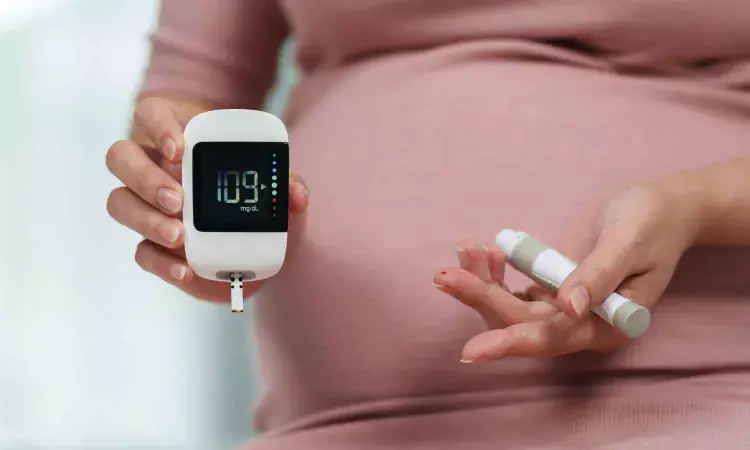- Home
- Medical news & Guidelines
- Anesthesiology
- Cardiology and CTVS
- Critical Care
- Dentistry
- Dermatology
- Diabetes and Endocrinology
- ENT
- Gastroenterology
- Medicine
- Nephrology
- Neurology
- Obstretics-Gynaecology
- Oncology
- Ophthalmology
- Orthopaedics
- Pediatrics-Neonatology
- Psychiatry
- Pulmonology
- Radiology
- Surgery
- Urology
- Laboratory Medicine
- Diet
- Nursing
- Paramedical
- Physiotherapy
- Health news
- Fact Check
- Bone Health Fact Check
- Brain Health Fact Check
- Cancer Related Fact Check
- Child Care Fact Check
- Dental and oral health fact check
- Diabetes and metabolic health fact check
- Diet and Nutrition Fact Check
- Eye and ENT Care Fact Check
- Fitness fact check
- Gut health fact check
- Heart health fact check
- Kidney health fact check
- Medical education fact check
- Men's health fact check
- Respiratory fact check
- Skin and hair care fact check
- Vaccine and Immunization fact check
- Women's health fact check
- AYUSH
- State News
- Andaman and Nicobar Islands
- Andhra Pradesh
- Arunachal Pradesh
- Assam
- Bihar
- Chandigarh
- Chattisgarh
- Dadra and Nagar Haveli
- Daman and Diu
- Delhi
- Goa
- Gujarat
- Haryana
- Himachal Pradesh
- Jammu & Kashmir
- Jharkhand
- Karnataka
- Kerala
- Ladakh
- Lakshadweep
- Madhya Pradesh
- Maharashtra
- Manipur
- Meghalaya
- Mizoram
- Nagaland
- Odisha
- Puducherry
- Punjab
- Rajasthan
- Sikkim
- Tamil Nadu
- Telangana
- Tripura
- Uttar Pradesh
- Uttrakhand
- West Bengal
- Medical Education
- Industry
Gut microbiota analysis can help catch gestational diabetes, suggests study

A new study has identified early-pregnancy gut microbiota signatures associated with the development of gestational diabetes mellitus, a metabolic disorder that carries substantial risks to both maternal and fetal health. The study, published in the American Society for Microbiology journal Microbiology Spectrum, provides new avenues for gestational diabetes prevention and management.
Gestational diabetes is a prevalent metabolic disorder characterized by abnormal glucose metabolism, primarily in the mid to late stages of pregnancy. Early intervention for gestational diabetes can substantially reduce complications for both mother and baby. Gestational diabetes significantly increases the risk of maternal complications such as gestational hypertension, polyhydramnios, and cesarean delivery, while also posing long-term health risks for the fetus, including asphyxia at birth and increased susceptibility to obesity and diabetes in adulthood.
In the new study, researchers from The Second Hospital, Southern Medical University, and the Third Affiliated Hospital of Guangzhou Medical University, all in Guangzhou, China, set out to identify gut microbiota dysbiosis that is strongly linked to the onset and progression of gestational diabetes that may serve as a critical early-warning biomarker. The scientists analyzed the fecal microbiota of 61 pregnant women during their first trimester of pregnancy using 16S rRNA sequencing. They then correlated these microbial profiles with oral glucose tolerance test results at 24-28 weeks of gestation and clinical delivery outcomes.
The researchers discovered that there were significant differences in gut microbiota composition between those with gestational diabetes and women who had healthy pregnancies. Based on their findings, the researchers developed an early diagnostic model for gestational diabetes, based on genus-level markers, with high diagnostic precision.
“These findings suggest that microbiota-based tools could enable early, non-invasive detection of gestational diabetes mellitus, offering new opportunities for prevention and personalized management,” write the study authors. “This research highlights the role of the gut microbiome in pregnancy and has important implications for improving maternal and fetal health outcomes.”
Reference:
Weirong Yao, Ruijing Wen, Zhufeng Huang, Gut microbiota composition in early pregnancy as a diagnostic tool for gestational diabetes mellitus, Clinical Microbiology, https://doi.org/10.1128/spectrum.03390-24.
Dr Kamal Kant Kohli-MBBS, DTCD- a chest specialist with more than 30 years of practice and a flair for writing clinical articles, Dr Kamal Kant Kohli joined Medical Dialogues as a Chief Editor of Medical News. Besides writing articles, as an editor, he proofreads and verifies all the medical content published on Medical Dialogues including those coming from journals, studies,medical conferences,guidelines etc. Email: drkohli@medicaldialogues.in. Contact no. 011-43720751


